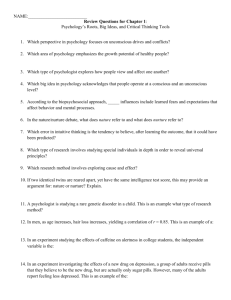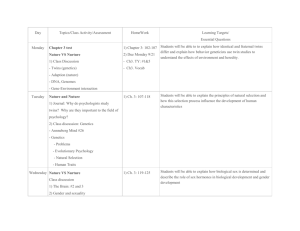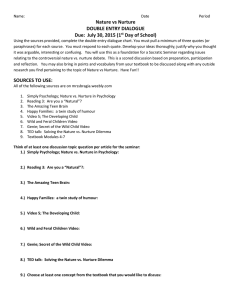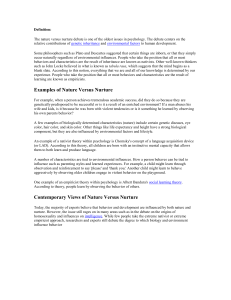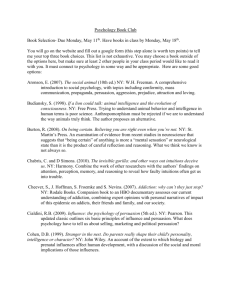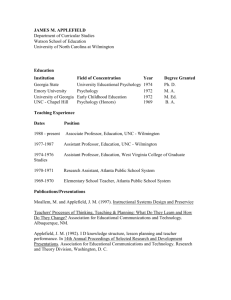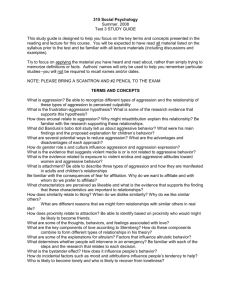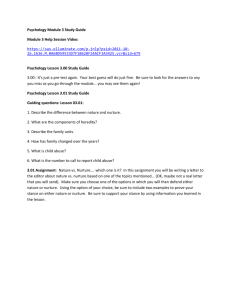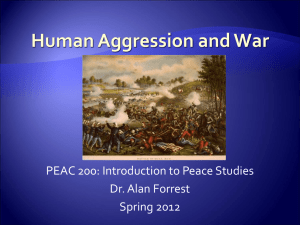Examples of the nature–nurture debate in psychology
advertisement
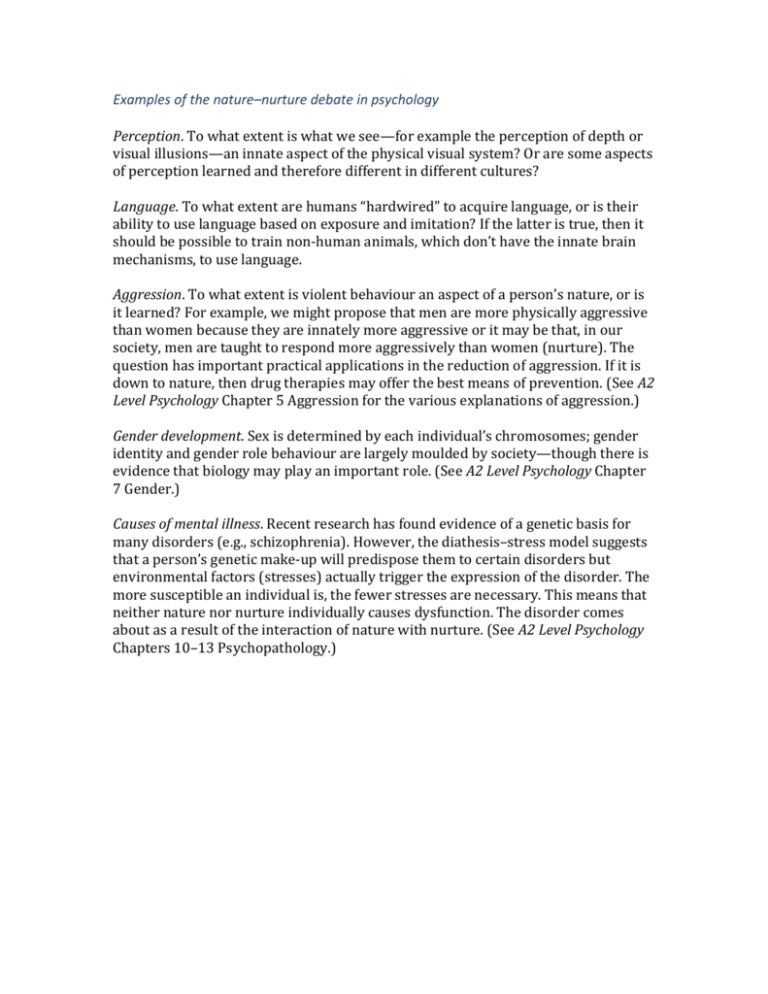
Examples of the nature–nurture debate in psychology Perception. To what extent is what we see—for example the perception of depth or visual illusions—an innate aspect of the physical visual system? Or are some aspects of perception learned and therefore different in different cultures? Language. To what extent are humans “hardwired” to acquire language, or is their ability to use language based on exposure and imitation? If the latter is true, then it should be possible to train non-human animals, which don’t have the innate brain mechanisms, to use language. Aggression. To what extent is violent behaviour an aspect of a person’s nature, or is it learned? For example, we might propose that men are more physically aggressive than women because they are innately more aggressive or it may be that, in our society, men are taught to respond more aggressively than women (nurture). The question has important practical applications in the reduction of aggression. If it is down to nature, then drug therapies may offer the best means of prevention. (See A2 Level Psychology Chapter 5 Aggression for the various explanations of aggression.) Gender development. Sex is determined by each individual’s chromosomes; gender identity and gender role behaviour are largely moulded by society—though there is evidence that biology may play an important role. (See A2 Level Psychology Chapter 7 Gender.) Causes of mental illness. Recent research has found evidence of a genetic basis for many disorders (e.g., schizophrenia). However, the diathesis–stress model suggests that a person’s genetic make-up will predispose them to certain disorders but environmental factors (stresses) actually trigger the expression of the disorder. The more susceptible an individual is, the fewer stresses are necessary. This means that neither nature nor nurture individually causes dysfunction. The disorder comes about as a result of the interaction of nature with nurture. (See A2 Level Psychology Chapters 10–13 Psychopathology.)
